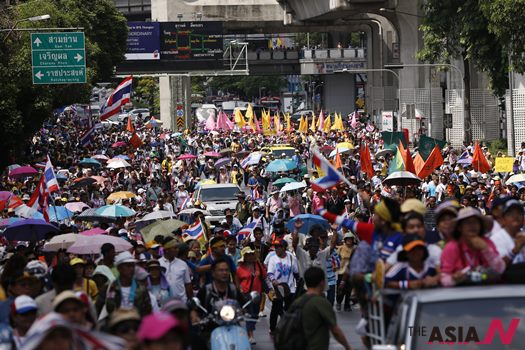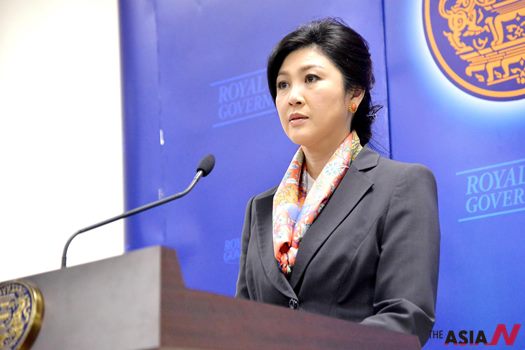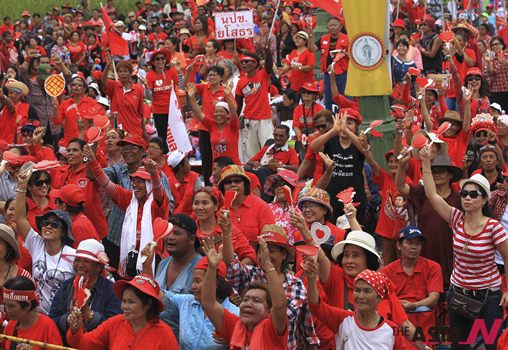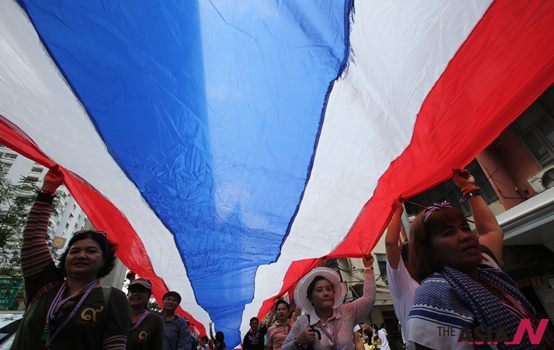
Shall Thailand submerge deeper into political turmoil?

After the Thailand’s supreme court decision demanding instant ouster of Thai Prime Minister Yingluck Shinawatra on May 7, Thailand seems to be sinking deeper into an unprecedented political turmoil. Yingluck’s supporters as well as opponents started to gather to express their support for their respective political camp.
Separately, the National Anti-Corruption Commission began proceedings on May 8 to impeach Ms. Shinawatra in connection with a subsidy program for rice farmers. In the meantime, new election schedules will proceed, slated for July 20. With the exit of Yingluck, Thailand seems to be sinking deeper into crisis, thus leaving the central country of Southeast Asia in a labyrinth.

“A judiciary coup” gashing Thai politics
The Constitutional Court decision marked a sudden and divisive swing in Thailand’s long-running power struggle. The exit of Yingluck Shinawatra and part of her cabinet members gashed Thailand’s executive branch at a time when the main parties in the fragile democracy have not been able to agree on elections or a way forward.
The court ordered Yingluck Shinawatra to step down after finding her guilty of abusing her position. However, Yingluck denies any wrongdoing in the case.
The decision handed down by the highest court was final and immediate. It removed all cabinet members who held posts at the time of the personnel decision. The remaining cabinet members quickly appointed Niwatthamrong Bunsongphaisan as acting prime minister.
Anti-government protesters celebrated ouster of Thai prime minister. Urban voters cheered after Thailand’s highest court removed Yingluck Shinawatra and part of her cabinet from power.
“Transferring government officials must be done in accordance with moral principle,” the court said in its ruling, which was read aloud on national television for more than an hour.
Despite the protests in Bangkok, Yingluck had maintained her popularity in rural areas. The divide between rural and urban voters has plagued Thailand for nearly a decade, since Thaksin Shinawatra — Yingluck’s older brother and the country’s first populist leader — was ousted as prime minister in a military coup in 2006.
Since then, a pattern has emerged in which rural voters returned Thaksin-backed parties to power and courts summarily removed them. Since 2006, the Constitutional Court has twice dissolved Thaksin-supported political parties and three times toppled Thaksin-supported premiers, including Yingluck.

Thaksin’s supporters, known as the “red shirts,” say the courts have become a partisan entity that wants to return power to Bangkok’s elites. Those who oppose Thaksin, though, say the telecom tycoon’s corruption and political meddling is undemocratic and is endangering the country. Thaksin has continued to advise Yingluck from political exile in Dubai.
Several hours after the ruling, Yingluck, 46, denied that she had done anything wrong and said her administration “never acted in a corrupt manner.”
New elections slated for July 20
New elections are scheduled for July 20. The ruling adds to already formidable obstacles jeopardizing that plan. Thailand figures to be all the more rudderless without Yingluck, some analysts say, raising the prospect of fresh attempts by the anti-government movement to install its loyalists in power.
If Yingluck’s supporters feel threatened, they, too, could descend on Bangkok, risking more violence in a replay of 2010 clashes.
A more promising scenario is that the court’s decision allows a brief reduction in tensions, appeasing anti-government protesters with Yingluck’s removal, while also keeping the Pheu Thai Party temporarily in power.
Yingluck won an election in 2011 and maintained relative stability until late last year. The movement against her was sparked by what she later called a political miscalculation: Thaksin’s supporters in parliament tried to ram through a bill that would clear him of graft charges and allow him to return home.

Again, Thai politics in troubled waters
Thai politics are notoriously fickle; the country has had 18 coups since a constitutional monarchy was formed in 1932. But the latest turmoil has taken a particular toll on one of Southeast Asia’s most important economies.
After its latest monetary policy committee meeting, Thailand’s central bank said economic growth in the first quarter of 2014 was expected to contract “more than previously assessed” because of the “ongoing political situation.”
A decision by Thailand’s highest court to remove Prime Minister Yingluck Shinawatra from office is almost sure to send the country deeper into crisis. Pro- and antigovernment groups are already massing for more protests that will further divide the polarized country and further disrupt an already weak economy.
Ms. Shinawatra was replaced by an acting prime minister who is one of her former deputies. It was the third time the justices have removed the head of the government in recent years using dubious legal reasoning.
Opposition politicians, some of whom brought the court case that led to Ms. Shinawatra’s dismissal, have been campaigning for months to remove her government and replace it with a team of unelected officials who would then carry out reforms, so far unspecified.
Many of Ms. Shinawatra’s troubles are of her own making. Unrest and violence, which have claimed about 20 lives, began in November after she tried to push through an ill-conceived amnesty law that would have pardoned her controversial brother, Thaksin Shinawatra, and others involved in the country’s political conflicts of the last decade.
Current crisis fueled by regional and class divisions
The current crisis is further fueled by longstanding regional and class divisions that have been exploited by both the Shinawatras, who have cultivated the support of more rural and poorer Thais in the north and northeast, and by their opponents, who tend to be based in the south and in Bangkok.
The latest ruling will do little to calm the waters. A national election is tentatively scheduled for July 20, and as it comes closer, the antigovernment protesters who have been in the streets for months are likely to be joined by red-shirted supporters of the Shinawatra family. Thailand, which has managed to grow despite its chaotic politics and frequent coups, appears to be approaching a breaking point. But more protests will not solve anything. What the country needs now is compromise and reconciliation.



